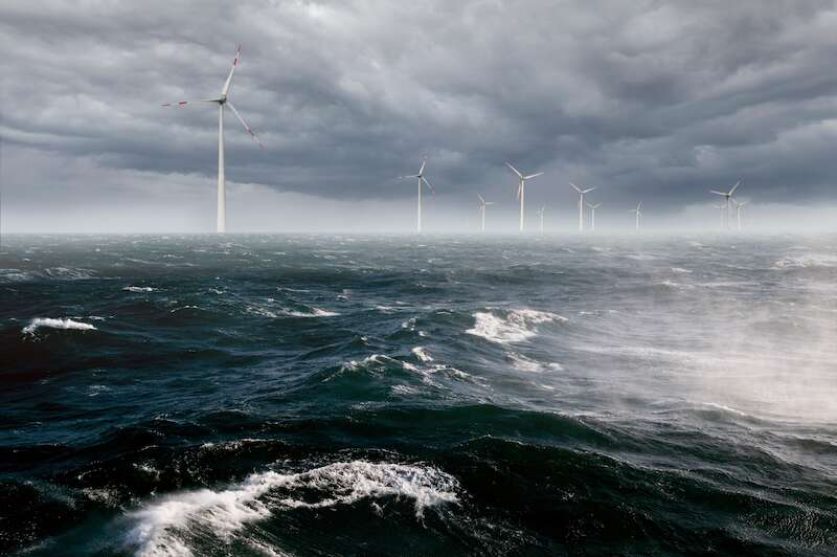
100mph gusts from Storm Malik pushed Britain’s wind turbines to generate a record 19.5GW of clean electricity on Saturday, National Grid’s Electricity Systems Operator (ESO) reports.
The bumper generation shattered the previous record for the highest wind power generation: 17.6GW recorded during the gusty May bank holiday weekend last year.
It also meant that wind power accounted for 50.94% of the electricity on the grid. However, this is shy of the record for wind power’s share of generation, also set on that blustery May bank holiday weekend, when wind turbines produced 62.5% of the country’s electricity for an hour between 2 am and 3 am.
On Saturday, the bounty of wind power temporarily eased supercharged electricity prices. The market price for electricity on Saturday fell to £150.59 per megawatt-hour, the lowest level since 3 January.
Electricity prices have been high since last summer, driven by historically high global natural gas prices and unusually low wind speeds across Europe. With Britain experiencing its windy April to September in 60 years, wind power generation was down 8.6% across 2021 compared to between 2020, according to an analysis from EnAppSys.
Low renewables generation forced Britain to rely more on fossil fuels for electricity, despite the surging of natural gas prices, and meant the electricity system was more polluting last year than in 2020.
Against that backdrop, in September, UK power prices reached an all-time of more than £424.60 per megawatt-hour, compared to an average price of just £44/MWh in the previous September. While Saturday’s electricity prices dropped on high wind generation, by Sunday they had rebounded again, to £193.50/MWh, showing that long-term relief from high energy costs isn’t around the corner.
Meanwhile, enthusiasm for Saturday’s renewables record was tempered by the deadly force of the storm. As it lashed Scotland and northern England, Storm Malik killed two people and left thousands without power. Many of the areas affected had just recovered from the battering of November’s Storm Arwen, which caused the most severe disruption to electricity supplies since 2005, with nearly one million homes without power for up to 12 days.
“Although we recognise this milestone on the way to a #zerocabon future, we’re also thinking of those affected by Storm Malik,” the ESO tweeted.
Sources: https://twitter.com/NationalGridESO/status/1487428593596739589
https://www.theguardian.com/environment/2022/jan/30/uk-windfarms-generate-record-electricity-storm-malik




